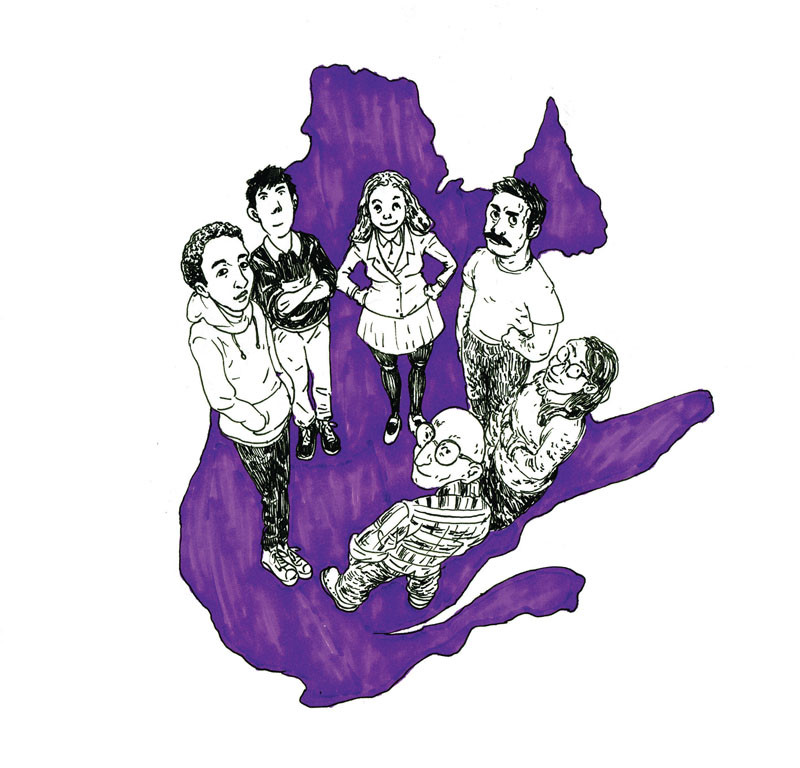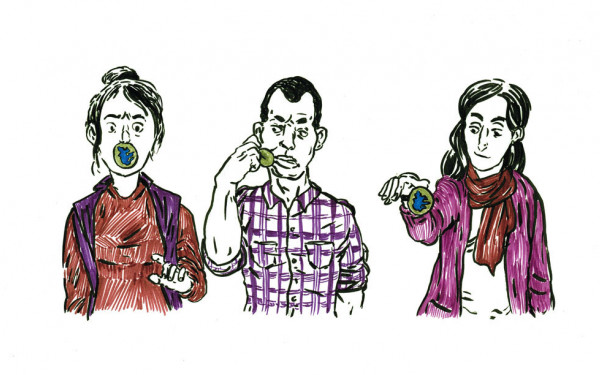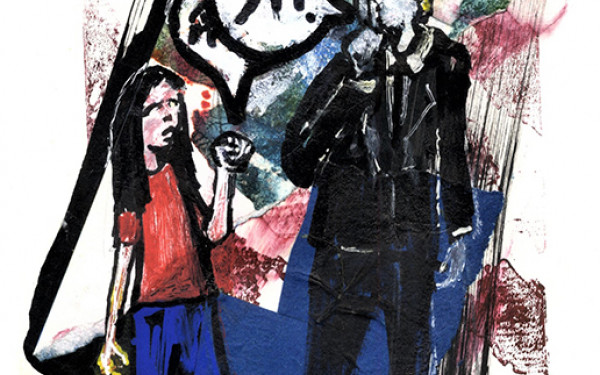A Culture of Many Cultures
Quebec’s Language Laws Help No One
Quebec’s culture must be preserved—but I don’t mean the one Pauline Marois has in mind when she says the same.
Since the days of the Quiet Revolution of the 1960s, the Quebec government has worked tirelessly to ensure the vitality of the French language and Québécois—or pure laine— culture in the province. And that’s certainly admirable.
But the way the province has undertaken that task has been to repress its own minority linguistic and cultural communities.
And that’s absolutely wrong.
Bill 101 tells you what school you can attend.
The Office Québécois de la langue française tells you “pasta” cannot be written on a menu and in what language you can and can’t address your colleagues at work.
Today, with the Charter of Values, the government wants to tell you how to dress.
This spring, if an election is indeed called and the Parti Québécois becomes a majority government, the party stated it will seek to re-introduce Bill 14, which would prohibit the province’s own native francophones from receiving an education in English not only through high school—as is the current case—but through CEGEP as well.
And it’s all in an attempt to protect the French language and preserve the Québécois culture.
And yet, French and the Québécoiscommunity aren’t on the verge of disappearing anytime soon in Quebec.
Nearly 95 per cent of Quebecers said they knew French in the 2011 Canadian census, and it’s the language most often spoken at home for 81 per cent of the province.
Talk show Tout le monde en parle is the province’s most-watched TV program and over 83 per cent of the population is Catholic—a defining aspect of the province’s heritage, as Premier Marois has made clear with her campaign to keep the crucifix in the National Assembly despite her push for secularism in the province.
Indeed, pure laine culture is firmly entrenched throughout the province. It’s not because of Bill 101—it’s simply due to the fact that, in the overwhelming majority of the province, most cities identify with one language and one culture.
As demographer Marc Termote told Maclean’s in 2011, “You will [speak only] French in Chicoutimi.”
It’s a different story down in Montreal.
Here, French isn’t the majority’s mother tongue.
Neither is English, for that matter. Instead, over one-third of the city’s residents are visible minorities and over half are non-francophones.
The allophones dominate in Montreal.
Ironically, this is mostly the provincial government’s own doing.
Rather than work to increase the birth rate once it fell below the replacement rate in the ‘70s, Quebec instead decided to make up for the disparity by admitting more immigrants to the province, over 90 per cent of whom naturally settle in its biggest city.
Couple this surge of new immigrants with a consistently growing number of francophone Montrealers moving to greener pastures in the suburbs in recent years, and the result is a declining pure laine community in the city—to the point that it may eventually disappear entirely.
Quebec’s answer to all of this hasn’t been to try and reverse the trend.
Instead, it has focused primarily on establishing the supremacy of the French language and the pure laine culture under the umbrella of interculturalism.
Rather than seeing all cultures as equals under multiculturalism—a policy the rest of Canada has adopted—Quebec has instead imposed upon immigrants to the province and its centuries-old anglophone communities “a public culture […] patterned after [francophones’] own needs, their own priorities and, most of all, their own particular sense of identity,” as Concordia political science professor Daniel Salée wrote in his academic article “Quebec Sovereignty and the Challenge of Linguistic and Ethnocultural Minorities: Identity, Difference and the Politics of Ressentiment.”
No wonder so many immigrants to Quebec and the province’s native Anglophones are high-tailing it westward by the busload.
Unfortunately, the Quebec government has yet to realize that a culture isn’t preserved by imposing on people to adopt it, and that a province doesn’t become unified by dictating what language its residents can speak or by having them choose between their religious beliefs or their job.
The Quebec government has yet to realize that “Quebec’s culture” doesn’t mean solely pure laine culture.
Quebec’s culture has become a genuine mosaic, and repressing some components of that mosaic in favor of others is not the answer to keeping French from declining in Montreal.
What the government’s policies have accomplished instead is to increase ethnic tensions, shrink Montreal’s linguistic communities and limit the province’s own francophones’ opportunities to expand their eligibility in an English-dominated global job market.
The surge in Islamophobia since the Charter of Values was announced, the all-time low enrolments in English schools this year and the fact that more and more allophones and francophones are attending anglophone CEGEPs in hopes of improving their English reveals as much.
It is time our government comes to terms with the fact that Quebec is multicultural, and that this is something to be celebrated; that it is an asset, not a threat.
It is time our premier realized that allophones, like Anglophones, have just as much right to their language and culture being preserved as that of her own.







